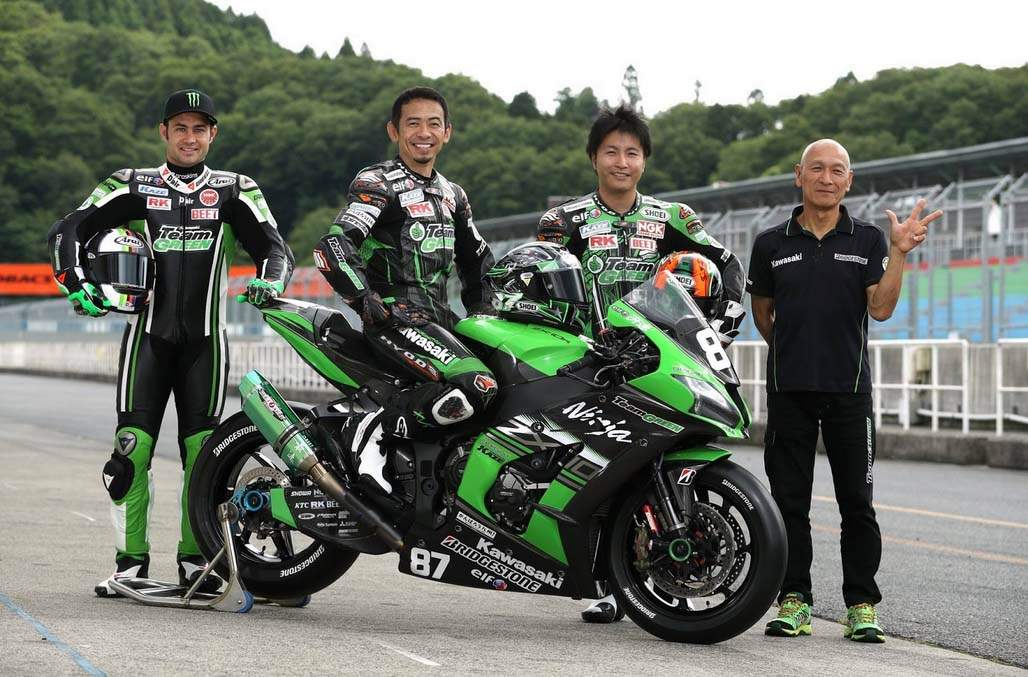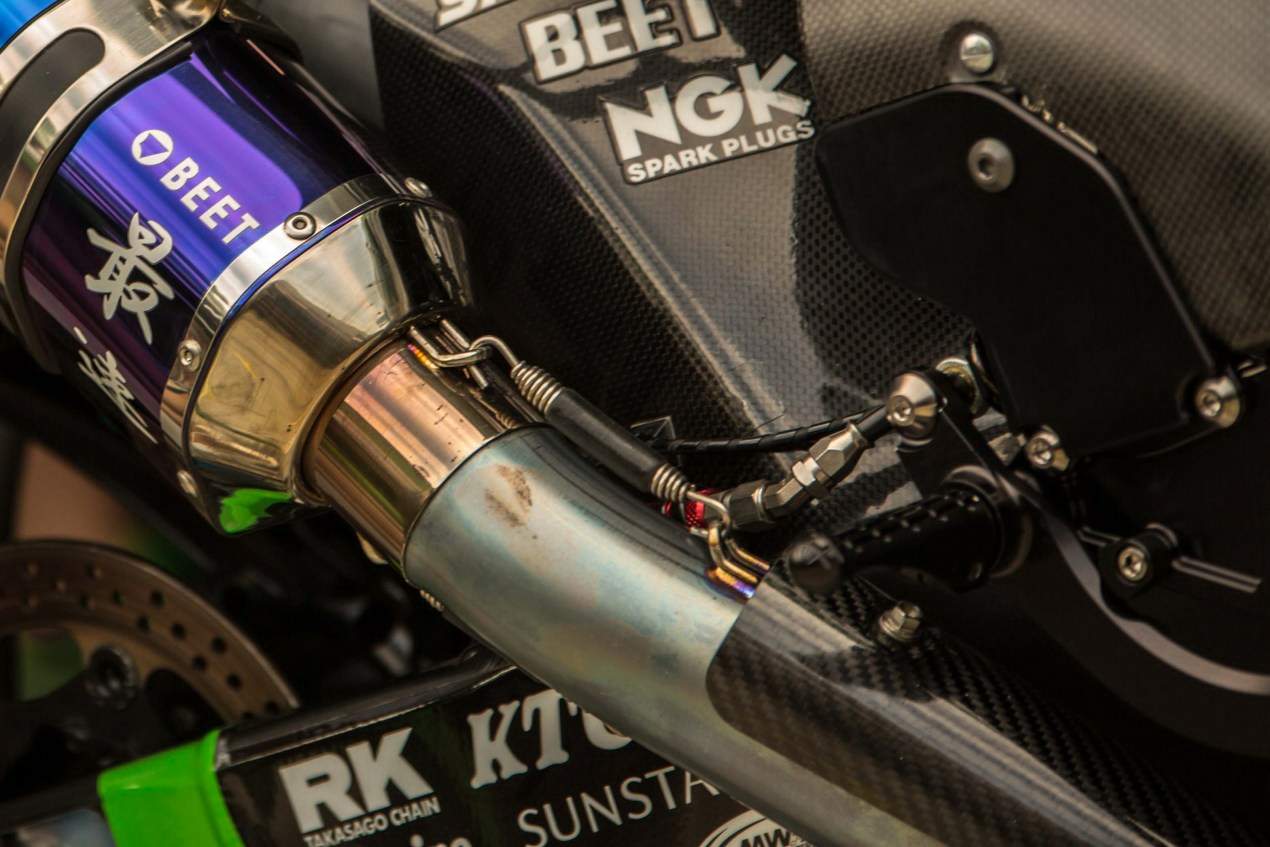This is the Team Green Kawasaki squad of Jonathan Rea, Leon Haslam and Kazuma
Watanabe who finished third in the 2018 Suzuka 8 Hour race on a ZX-10R.
Here is a brief overview on the Kawasaki ZX10R taken from
Asphalt and Rubber
The 2018 Suzuka 8-Hours endurance race was the biggest effort that we have
seen from Kawasaki, which enlisted the help of its future WorldSBK team
(Jonathan Rea, Leon Haslam, and part of the KRT pit box), to join the Japanese
engineers and All Japan Superbike rider Kazuma Watanabe.
Part of the effort involved honing the specially prepared Kawasaki Ninja
ZX-10RR race bike for the Suzuka 8-Hours, and this included a considerable
amount of pre-event testing, with WorldSBK crew chief Pere Ribe overseeing the
bike’s development.

Looking up-close at the Suzuka Kawasaki Ninja
ZX-10RR, we can see that extensive changes have been made to the machine, from
the headlights to the chassis.
The first thing that caught my eye is the small lithium-ion battery that is
tucked inside the fairings. I suspect that this is because the Suzuka 8-Hours
Ninja ZX-10RR runs a total-loss electrical system.
This used to be the case on the WorldSBK-spec machine, before the rules
forbade it, and removing the generator helped improve handling immensely.
With this battery easily accessible, and apparently on a clip connection, one
can imagine that every other stint or so it could be replaced, keeping the
bike’s electrical system going. Or maybe, it was just relocated. Only the
Kawasaki engineers know the real story.

Admittedly though, the most interesting pieces on the machine are not
Kawasaki, but instead are the suspension pieces brought by Showa to the Suzuka
8-Hours.
It is difficult to verify, but there was talk from Japan that the inner forks
tubes are made from titanium, in an effort to reduce mass (of note, readers
should also see the carbon fiber outer fork tubes that Öhlins has been
developing).
The alternative would be some sort of coating or treatment to increase the
material hardness, which helps lower friction and initial stiction.
The rear shock looks the most interesting, however, and of note is how many
battle scars are on it from extended use. Note the carbon fiber panels that
shield the rear shock as well, possibly for aerodynamic streamlining.
Brakes are by Brembo, and include “T-bar” floating rotors up front.
Unsurprisingly, the rubber is provided by Bridgestone. The exhaust is a full
titanium unit.
